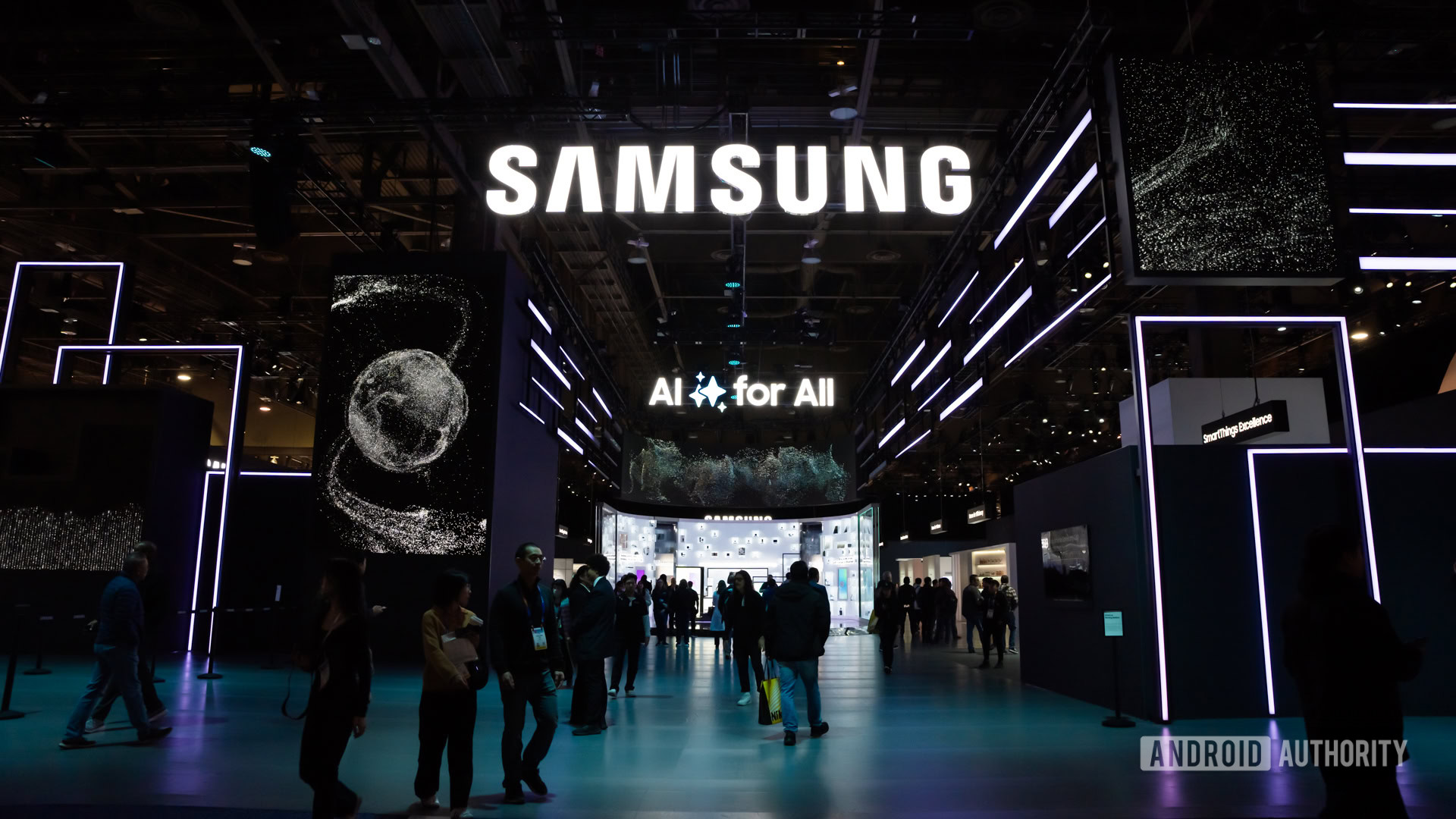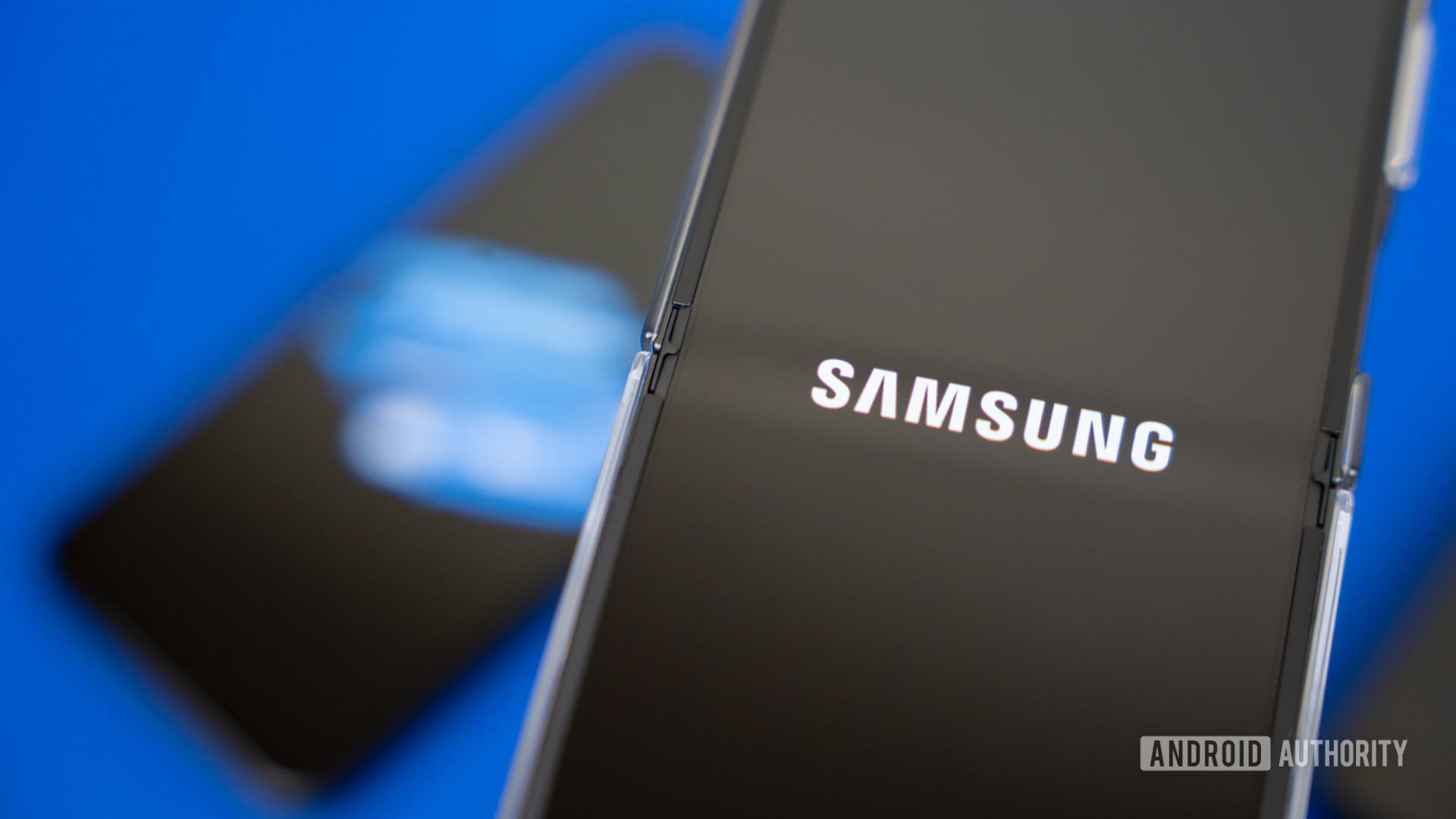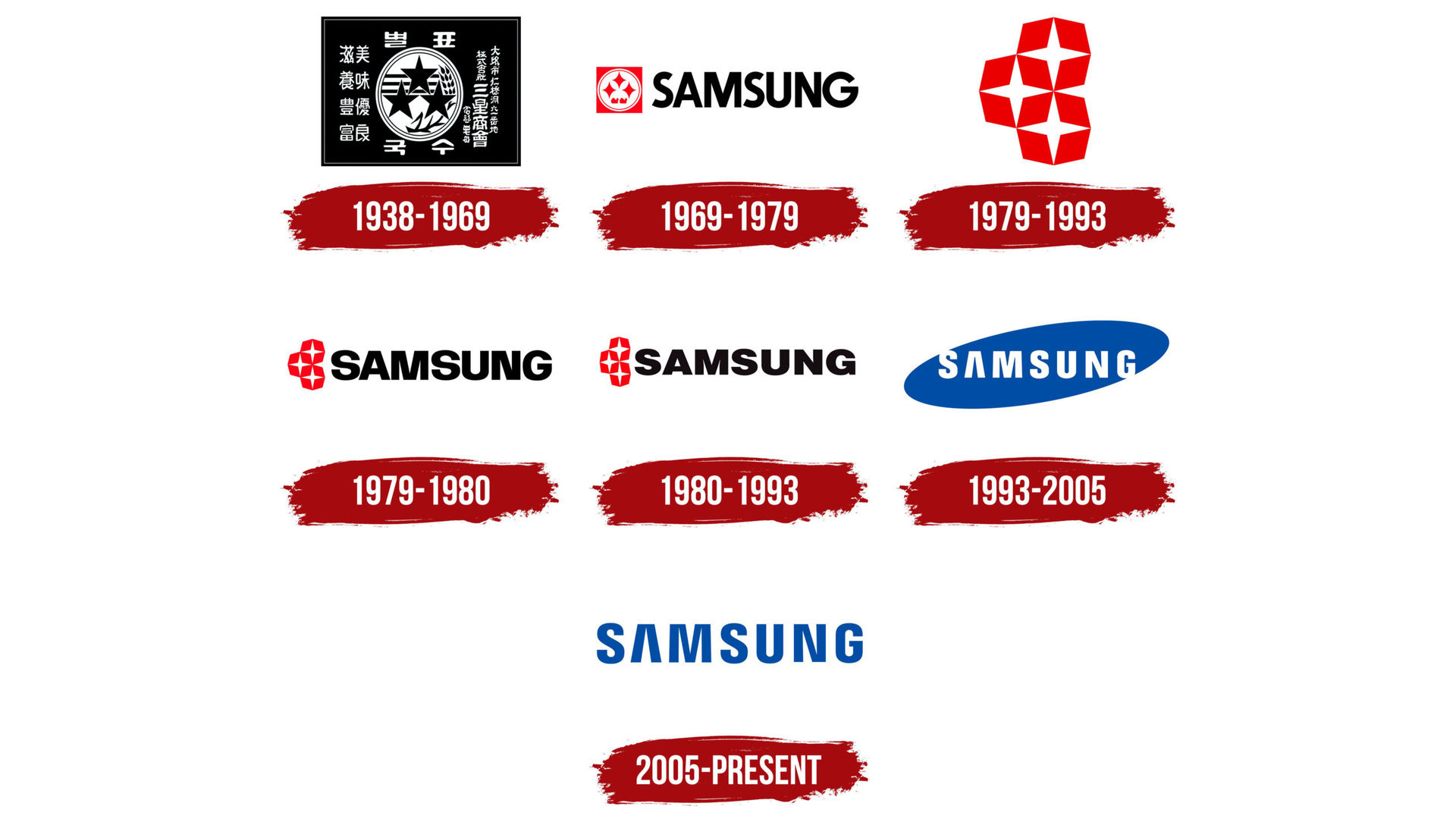Affiliate links on Android Authority may earn us a commission. Learn more.
Who owns Samsung? A brief history of the South Korean giant
Published onMarch 9, 2025

When you hear the word Samsung, your mind probably jumps to portable electronics like smartphones or home appliances. But you might not realize that the South Korean company’s influence extends far beyond making the best Android phones. In its home country of South Korea, the Samsung Group operates everything from hotels to hospitals and even the country’s largest life insurance firm. With so many businesses and subsidiaries, you may wonder — how does the Samsung Group manage day-to-day operations and who owns it all?
Who owns Samsung?
Samsung is a large family-owned company, which is commonly referred to as a chaebol in South Korea. Other examples of chaebols include Hyundai and LG. Today, Samsung is led by Lee Jae-yong, a direct descendant of the company’s founder. With an estimated net worth of $8.2 billion, he’s the second richest person in South Korea.
Samsung is a South Korean company owned by the Lee family.
Lee Jae-yong (also known as Jay Y. Lee) stepped up as Samsung’s executive chairman in October 2022. Prior to that, his father Lee Kun-hee headed Samsung for over three decades and shaped the company into the electronics giant we know today.
The concept of chaebols first emerged in the 1960s after the Korean War as the country’s government entrusted select companies with building export production. This gave rise to a kind of symbiotic relationship between chaebols and the South Korean government that exists to this day. The influence of chaebols in the country has led to some controversy, but more on that later.
The South Korean government has assisted Samsung since the 1960s in a bid to boost the country's export output.
Samsung as a company has existed since before the first computer hit store shelves. Lee Byung-Chull founded Samsung in 1938, specializing in trading dried fish, noodles, and other domestic produce. Of course, the company eventually diversified into insurance, consumer finance, electronics, hospitality, construction, and a number of other industries through a series of acquisitions and investments. And, as we all know, Samsung has played a massive role in the history of cell phones.
Today, the Samsung Group accounts for roughly 20% of South Korea’s Gross Domestic Product (GDP). That’s one of the largest single contributions by any company in the world.
Is Samsung a publicly traded company?
In total, the Samsung Group controls around 80 subsidiaries. This is largely a result of the Lee family coming up with creative ways to retain as much control over the company as possible. You see, only 19 of Samsung’s subsidiaries are publicly traded on the Korean stock market. The Lee family owns enough shares in each subsidiary, both directly and indirectly, to steer the entire company.
For example, Samsung Electronics is partially owned by two other subsidiaries: Samsung Life Insurance and Samsung C&T. On paper, Samsung’s chairman Lee Jae-yong has a much smaller individual stake than either of those subsidiaries. However, because Lee also holds a large stake in the subsidiaries, his control over Samsung Electronics indirectly increases. This kind of cross-ownership is common across other South Korean chaebols as well.
Samsung's subsidiaries own parts of each other, which helps keep the Lee family in control.
Besides the Lee family, the South Korean National Pension Service also holds a sizable 8% stake in Samsung Electronics. And given the close relationship between chaebols and the government, it should come as no surprise that the Lee family usually faces little to no opposition to shareholder proposals.
Large institutional investors, both Korean and international, also hold sizable stakes in Samsung and its subsidiaries. New York-based fund management company BlackRock, for instance, holds the third-largest chunk of Samsung Electronics and Securities. The company discloses its shareholder structure every quarter.
Who makes decisions at Samsung?

Now that we know the answer to who owns Samsung, what about day-to-day decision-making? It’s complicated. Even though Samsung’s corporate structure keeps the Lee family largely in control, it doesn’t always work in their favor.
In 2017, Lee Jae-yong was found guilty of bribery and corruption charges after he donated millions to sway key members of the government, including the country’s then-President Park Geun-hye. But while he was initially meant to serve five years in prison, Lee’s sentence was commuted only a year later. Notably, Lee Jae-yong hadn’t assumed the role of Samsung’s chairman yet, even though he made key decisions at the time.
Samsung's current chairman was sent to jail for bribing a former South Korean President.
The scandal re-emerged in 2020, when South Korea’s Supreme Court reopened the case. Lee was then sent back to jail to serve the remainder of his sentence. However, he was later released on parole and then pardoned by the President in a bid to “overcome the economic crisis” and revitalize the South Korean economy after COVID-19.
Lee Jae-yong was officially sworn in as Samsung’s executive chairman in October 2022. Prior to that, he served as the company’s de facto leader following his father’s heart attack and subsequent coma in 2014.
Can I buy Samsung stock? Will the company ever be taken private?

As mentioned above, a handful of Samsung Group’s subsidiaries are publicly traded companies. This means that anyone can buy their shares on the stock market. However, Samsung shares don’t trade on American stock exchanges like the NYSE, making it slightly harder for the average person to invest in the company.
To buy Samsung shares, you’d have to open a South Korean brokerage account or find a local bank that will process the transaction. Larger investors typically trade over the counter with such financial institutions. You can find more details on Samsung’s investor relations website.
If you don't want to open a South Korean brokerage account, you can indirectly add Samsung to your investment portfolio via an ETF.
If you simply want some exposure to Samsung in your portfolio, you can also invest in an exchange-traded fund (ETF) instead of buying individual shares. The iShares Asia 50 ETF (ticker AIA), for example, has a 6% exposure to Samsung Electronics. The latter is responsible for making many products you’re familiar with, from all of Samsung’s phones to home appliances.
As for whether the company will ever be privately owned again, it’s unlikely given the sheer value of its subsidiaries. With a market capitalization of over 300 billion, Samsung is one of the largest companies in the world. For some context, Elon Musk had to pay $45 billion to buy Twitter and take it private. And even that required creative accounting with bank loans, disposal of Tesla shares, and assistance from existing large shareholders. So it’s safe to say that Samusng won’t go private anytime soon.
FAQs
Samsung Group is headquartered in South Korea. The company operates many local and international subsidiaries across industries like electronics, finance, and logistics.
With a market cap of over $2 trillion, Apple currently holds the title of the world’s most valuable company. Samsung’s $300 billion market cap is much smaller, but it still ranks within the top 30 most valuable companies worldwide.
Samsung’s current chairman, Lee Jae-yong, was sentenced to prison in 2017 for bribing South Korean politicians, including the country’s former President. However, he was later released on parole and pardoned, likely due to Samsung’s sheer size and contribution to the South Korean GDP.
